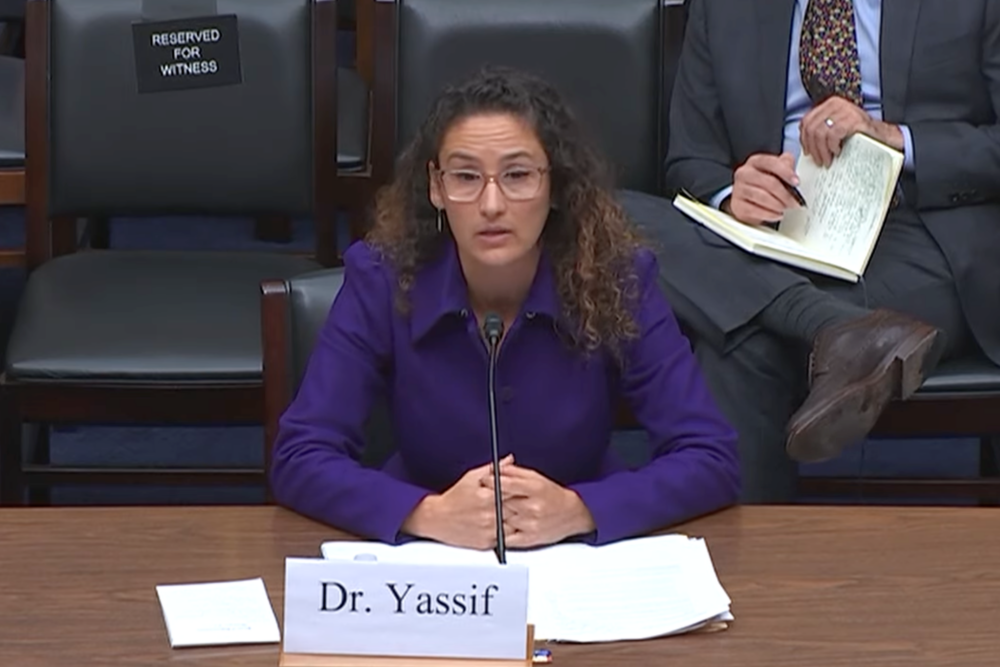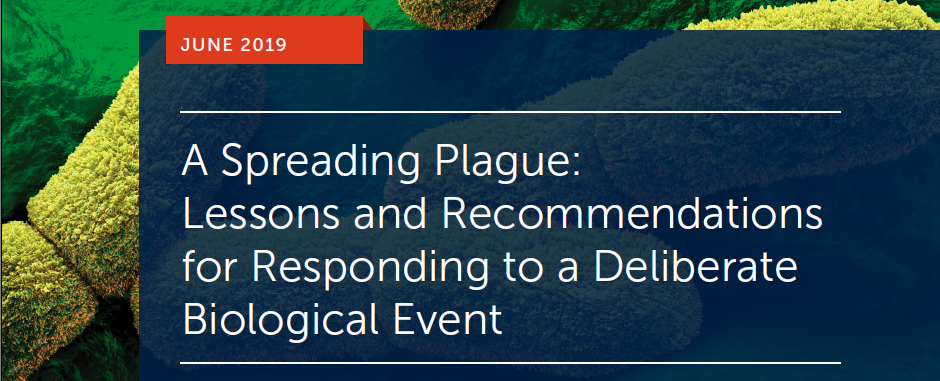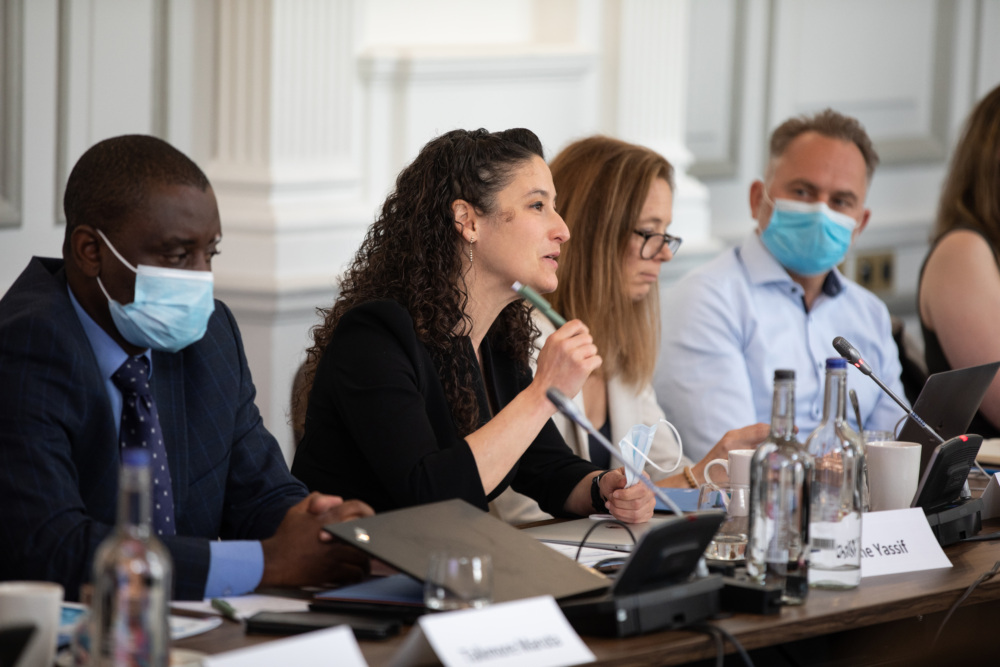The risks of a global catastrophic biological event are
rising, and international leaders and organizations today are unprepared to
react with the kind of effective, coordinated response needed to investigate
and identify the pathogen, prevent the spread of disease, and, most
importantly, save lives, according to a new report from NTI | bio, Georgetown
University’s Center for Global Health Science and Security, and the Center for
Global Development.
A Spreading Plague: Lessons and Recommendation for Responding to a Deliberate Biological Event offers recommendations for urgent action to address this deficit.
“Without the right procedures and tools in place, there is
little doubt that a rapidly spreading biological event would place overwhelming
stress on the people and institutions responsible for response,” the report
states. “The lack of established procedures would very likely undermine the
trust and cooperation needed among health professionals, humanitarian
responders, and security officials who would be aiming for a coordinated,
effective response.”
The paper presents key findings from a dramatic tabletop
exercise based in “Vestia,” a fictitious country embroiled in civil unrest and
facing an unusual, fast-moving outbreak that appears to be plague. Highlighting
the gaps in preparedness, the exercise sparked disagreements among the
participants—senior leaders from security, public health, humanitarian, and
political sectors—as they struggled to coordinate and rapidly respond.
Organizers of the event—Elizabeth Cameron of the Nuclear
Threat Initiative, Rebecca Katz of the Center for Global Health Science and
Security at Georgetown University, and Jeremy Konyndyk of the Center for Global
Development—which was held on the eve of the 2019 Munich Security Conference, drew
on the exercise to develop recommendations for critical improvements to avoid
catastrophic consequences of both deliberate and other high-consequence
biological events. The recommendations include steps to enhance international
coordination, information sharing, and investigation and attribution, and to
increase financing for response and preparedness.
Organizers noted that many of the gaps in preparedness and
response have been well-known for years—but they must not be viewed as
intractable. “Leaders across all sectors have an obligation to develop better
systems, mechanisms, and procedures for saving lives and preventing future
potentially catastrophic outbreaks,” the report states. “The risks are rising.
It is time to meet this challenge.”





